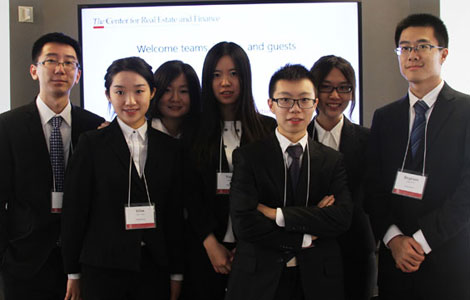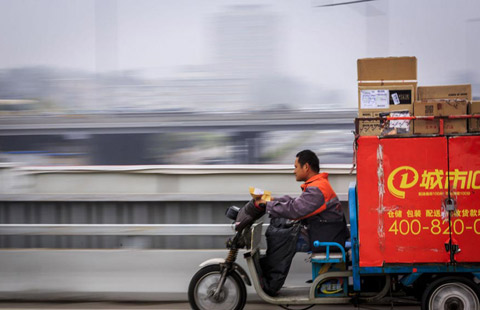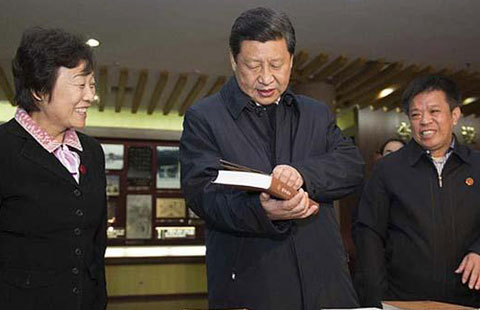FDA beefs up China office
Updated: 2014-11-05 09:12
By PAUL WELITZKIN in New York and SHAN JUAN in Beijing(China Daily USA)
|
||||||||
The US Food and Drug Administration (FDA) is boosting the size of its office in China, including more inspectors to check food exports to the US, under an agreement reached last year between the agency and China.
The agency said on Tuesday that the accord allows posting seven more food inspectors and 10 additional drug inspectors in Beijing. The expanded FDA office will total 27 US employees and seven Chinese staff members.
The FDA's China office oversees the safety, quality and effectiveness of FDA-regulated products produced in China for export to the US.
Michael R. Taylor, deputy commissioner for foods at the FDA, said that the staff increase "permits us to work more closely with our Chinese counterparts to become knowledgeable about practices here. We can work with both the Chinese government and the industry to explain our requirements and provide trading support for those exporting to the US to comply with our standards."
"Food safety is a very dynamic challenge, and the food system is becoming more technologically complicated and global," Taylor said.
Citing a globalized food and drug-supply chain, China is also considering sending safety inspectors to the US, said Wu Yongning, chief scientist at the China National Center for Food Safety Risk Assessment. Wu said that given China's size, the increase of US FDA inspectors would allow more on-site inspections of particularly high-risk producers.
John Gordon, founder of San Diego, California-based Pacific Management Consulting Group, a restaurant industry adviser, agreed that globalization of food has created new safety challenges.
"No one could have predicted the phenomenal growth in food trade in the world. Now there is an increase in expectations for food safety that is coming from all corners of the globe," he told China Daily in an interview.
Proper supply-chain management is crucial to maintaining safety standards, Gordon said.
"There is less room for error in the food supply chain now. With the Internet, everyone knows about a safety issue almost the minute after it happens. Everyone wants supply-chain assurance so the inspection procedures need to be rigorously reviewed," he added.
In July, US-based OSI Group, owner of a Shanghai food supplier for McDonald's, KFC, Pizza Hut and Starbucks in China, was accused by a television station of using expired meat and forging production dates on certain products to extend shelf time. OSI ceased operations at the Shanghai Husi plant for internal and external investigations and later said it would invest 10 million yuan ($1.62 million) for a three-year food safety education campaign in China and establish an Asia Quality Control Center to regain market confidence.
paulwelitzkin@chinadailyusa.com
- Airport advises passengers to brace for APEC traffic rush
- More cities join Beijing to ensure blue skies during APEC
- Mission and vision of APEC Beijing meeting
- Free trade deal beneficial to APEC
- China seeks progress in building new type of relations with US
- China slams last colonial governor for remarks on HK Occupy Movement
- Jordan recalls envoy to Israel over Jerusalem 'violations'
- Hamas claims responsibility for drive-over car attack in Jerusalem
- Jump over the ruins
- Mongolian PM fired by parliament, leading to govt collapse
- Chinese premier to attend East Asia leaders' meetings, visit Myanmar
- Kerry urges greater US-China co-op in major global issues

 Rehearsal of firework show for APEC staged in Beijing
Rehearsal of firework show for APEC staged in Beijing
 Republicans capture control of Senate in US midterm elections
Republicans capture control of Senate in US midterm elections
 APEC at 25 years
APEC at 25 years
 Chinese students compete in real estate challenge
Chinese students compete in real estate challenge
 Jump over the ruins
Jump over the ruins 
 Trending across China: Abortion lesson horrifies kids
Trending across China: Abortion lesson horrifies kids
 8 things you should know about 'Double 11'
8 things you should know about 'Double 11'
 Culture Insider: What books do politicians like?
Culture Insider: What books do politicians like?
Most Viewed
Editor's Picks

|

|

|

|

|

|
Today's Top News
Republicans gain seats in US Senate
China plans 1,000 more staff to fight Ebola in Africa
China seeks progress in building new type of relations with US
China slams last colonial governor for remarks on HK Occupy Movement
China renovates Unit 731 site
No timetable for full relaxation on one-child policy
Full probe of Zhou Yongkang case needs time: official
Free trade deal beneficial to APEC
US Weekly

|

|







